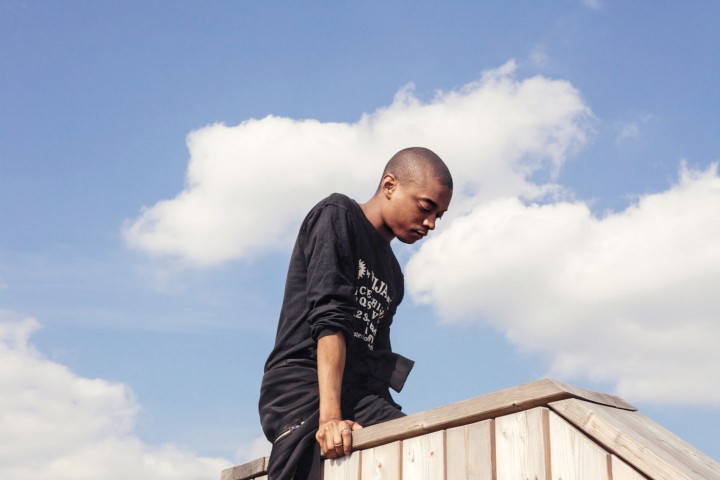It’s 3pm on a Monday afternoon and J’Kerian Morgan is still in bed. He’s the producer known as Lotic, who earns his money playing live dates while living in Berlin, so it’s only natural that weekends are work days and the rest is reserved for recovery. He’s one of a growing swell of US artists shifting out the States and into the German capital, helping transform its hitherto homogenous electronic music scene. “I don’t think it’s common for Americans to leave America. We think we’re the center of the world, so there seems to be no reason to leave, ever,” he jokes. Talking through a webcam, topless and under sheets, he speaks about the rather desperate circumstances that precipitated his own move from the Land of Plenty to Europe: “I was actually really afraid to do it, but at the time I felt like it was the only option.”
Releasing his second EP, Heterocetera, on New York–based label Tri Angle on March 2, Morgan’s musical typology isn’t that easy to place. It’s a culmination of his love of pop, an interest in noise and an education in composition, developed in the milieu of a Texan music scene dominated by indie rock and honed in the equally assertive club community equivalent of Berlin. “I’m coming from making electro-acoustic music, which is basically going somewhere with a field recorder and scratching on a rock or knocking on a table and making a track or a full album out of that,” Morgan says with chuckle. The sporadic percussive clatter and cow sounds underpinning “Slay,” and the breathing, gasping, vocal samples that fracture and fast-forward across “Phlegm” don’t just generate a unique sound or style but an entire sonic language with its own semantic logic. “I guess I’m looking for sounds that are already kind of strange. I’m doing a lot more to manipulate them now, but I always wanted to make music in the fastest way that I could make it, as I needed to get the idea out as quickly as possible.”
Heterocetera is probably Morgan’s most refined expression of this sensibility to date. Whereas his earlier, incredible, Damsel in Distress mix featured a sped-up Missy Elliot vocal choking under a metal crush — and possibly the best “Drunk in Love” Beyoncé remix of 2014 — Heterocetera features no recognizable samples. That’s of course apart from the vogue classic “The Ha Dance” by Masters at Work. “I always like to play with popular trends in dance music and just, like, fuck them up,” Morgan says about the absurdly overused hook that’s been in vogue ever since ’90s ball culture became the next big thing around 2011. “Because it is funny. It’s like, ‘hey, let’s all use the same sound and see how many different songs we can make with it.’ I think this has been true of dance music forever. But still, there’s also a certain arrogance that’s like, ‘That’s it? That’s the most that you can do with this sample?’ And it’s like, OK, enough straight white men have done this. It’s time to shut them up and move on. Let’s close this trend and move on to the next thing. Here’s the period to that sentence.”
You’d need a bit of arrogance, or at least blind ambition and maybe a bit of nothing-to-lose, to come as far as Morgan has. Now based across the Atlantic and in another time zone from where he graduated into a recession in Austin (“with a film degree,” as Morgan points out, laughing), the outlook is far brighter in Berlin for an artist of his background. “The darkest thing for me wasn’t not being able to find a job; it was everything else, and the reason that I couldn’t, and the reason that there weren’t any for anyone. This was right after Trayvon [Martin] and right before several other highly publicized unarmed teen killings. It just got really, really frightening to realize that I was becoming an adult in this kind of environment. Like, ‘What do we have left to hold on to? What do I have to look forward to?’ As each day passed, more and more it seemed like the answer was nothing.”
Now, three years after what Morgan describes as a “really, really hard” relocation to a completely different climate, he’s a working producer with a powerful oeuvre and a growing output. But like most worthwhile things, it hasn’t come without its sacrifices. “I am an immigrant, so there are a lot of things happening inside of me politically. I’m still angry about a lot of things in America, including feeling like I can never go back there. But I do have a life here, and I think it gets easier.”


